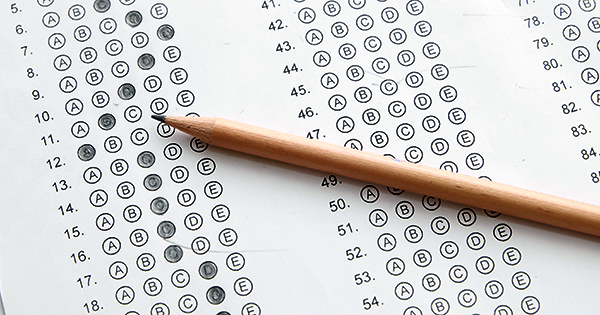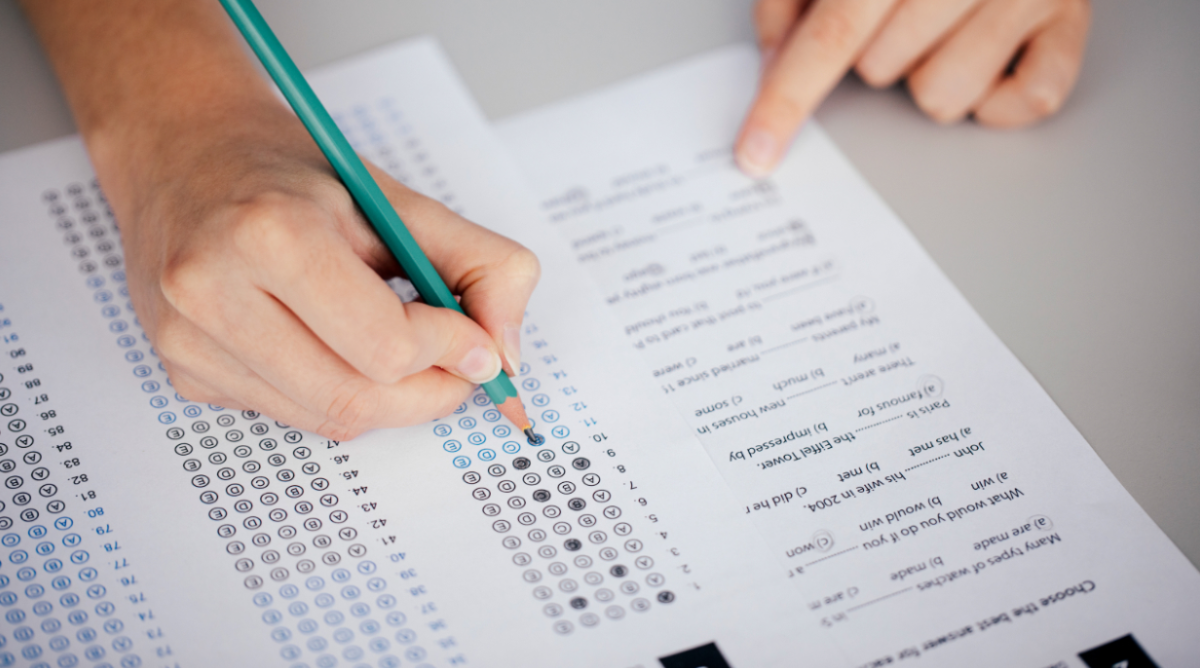As we approach midterms in the next couple of weeks, perhaps the majority of us feel unprepared and overwhelmed. On top of that, eighth-graders and incoming freshmen will also be taking semester exams for the first time. I was extremely stressed my first year here, too, and sometimes still am, but hopefully you will find my advice from past experiences helpful.
Obviously, we all (hopefully) know to study for midterms. Since the tests cover everything taught in the semester, it would be hard to do well without at least reviewing the material. However, how you study matters. Here are some tips:
- Have a designated study space. I am guilty of sitting on my bed or the couch to do work, but I have found that I can focus better when I sit at my desk or the dining room table. Feel free to add a blanket or cushion to your chair if you’re uncomfortable.
- Avoid wearing sweats or pajamas if they put you in ‘lax mode’. Cognitive behavioral therapists give this same advice to increase productivity and improve mood. Likewise, wearing clothes associated with a particular discipline—such as practice gear as part of a sports uniform—is proven to implicitly motivate the brain to try harder in that particular area.
- Don’t do any studying the night before. Briefly gloss over any key concepts if you must, but no intense study sessions. Your brain needs time for the information to settle in. Instead, ditch the caffeine and hit the hay.
- Take notice of when you are most productive, and schedule your studying to take place as close to that window as possible. You obviously shouldn’t cram the night before an exam, but there’s no shame in staying up late if you’re already a night owl (as long as you still get enough sleep).
- Avoid passive methods, such as rereading notes and passages. This only reinforces the correct answers we already know, creating a false sense of confidence. Focus on active recall instead (flashcards, practice quizzes, etc.) since it forces you to generate an answer. You may not know as much as you thought, but that’s okay—there is proof that people are more likely to learn if they previously got the answer wrong.
- Studying for too long actually does more harm than good. I myself have felt ‘brain rot’ after staring at material for too long; my eyes scanned over the material over and over again, but all the information was blending into one. I instead recommend the Pomodoro method: divide the material into specific sections, spend no more than 25 minutes on each one, add short breaks in between, and repeat four times.
- All subjects may weigh the same on your report card, but rarely are they equally difficult. This partially has to do with tip number 1. Spend more time on honors/AP classes or whichever courses you find the most challenging. Only studying the concepts you feel good about wastes time and leaves the brain unaware of what needs more work.
- Study for the test, not just for its content. Knowing the material is half the battle, but having speed and familiarity with the format are also necessary. Practice under the actual conditions of your exam once you feel comfortable with the material. Time-induced stress can cause people to forget things they normally wouldn’t—don’t let that be you. For STEM courses, also factor in what your teacher counts as ‘showing your work’, and whether you’ll be allowed to have formula sheets or calculators.
- You should be sure to understand the content, not memorize it. Memorization will only take you as far as the next test, but understanding will increase your confidence despite time limits and confusing questions. Sometimes, remembering ideas not explicitly mentioned on the exam can help you make an educated guess.
- Physically do the problems out. Know them well enough to teach to someone else. Just memorizing the formulas will not help with anxiety; it won’t make you familiar with the amount of time needed or what a correct answer should look like.
- Get comfortable speed-reading. A trick I learned is to focus your eyes on the middle of a line of text—not the left—and they will naturally pick up the left and right at the same time.
- However, since it is easy to miss important information, read the question twice and annotate it. Words such as ‘not’, ‘only’, and ‘significant’ can completely change its meaning.
- Classwork is pre-studying. Homework is pre-studying. Paying attention is pre-studying. Doing the assigned reading is pre-studying. They’re not enough on their own, but they’ll likely reduce how much you’ll need to study later.
- For foreign languages, practice speaking and listening alongside writing. Writing is typically the area where non-native speakers are strongest, but it tends to take away attention from the other two. You might feel confident in your written grammar, but make sure you’re comfortable with vocab, tenses and conjugation while speaking and listening on the fly.
- Last, but not least, know that you are brilliant and hard-working, and that you have done everything you can to prepare. Going in with a positive attitude is not being ‘cocky’ and is essential to performing well.


























